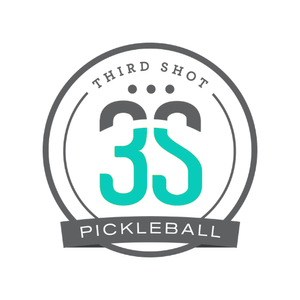We recently invited our social media followers to share the best pickleball advice that they’ve been given – and wow did they respond! This is the first in the series of articles where we will post that advice and I’ll respond in turn. Let’s get to it!
“Practice more than you play & always watch the ball.”
Alright. I think this counts as two pieces of advice, but we will tackle them together. First, “practice more than you play”. I guess my question would be why? What assumptions are built into this suggestion? Is the assumption that players want to improve? To get better at pickleball? Become more competitive? Because from experience I can tell you that while many people want to improve their pickleball game, this is not always the case.
Now If someone does want to improve their skills, I would tend to agree with the practice more than you play suggestion – with one caveat: it’s important that you practice effectively. What does that mean? It means being deliberate. Having a clear training plan. Knowing what you’re working on and why. Effective practice means using drills activities that actually make sense and will move you closer to the goal of getting better.
I have written elsewhere about the importance of thoughtful training. It’s not just a matter of practicing, of putting in non-game time on the court – it’s about putting in high-quality, meaningful reps in areas that need work.
As far as the tip of watching the ball goes, I’m a little ambivalent. Of course you have to “watch the ball”. It’s a small moving object that is flying toward you at a high rate of speed. It is important to concentrate. It is important to be attentive to the ball. But often that high rate of speed literally makes it impossible to see the ball hit the paddle – it’s simply too fast!
But let’s assume you had superhuman vision – there are moments when you also shouldn’t be watching the ball. Senior Pro Player and coach Dayne Gingrich has written much on the topic of watching the ball – or, rather, not watching it. In a January 26, 2024 post he wrote: [Players] can respond quicker by watching [their] opponents movements…than [they] can by watching [their] partner make contact”. And this is right. There are times when not watching the ball makes more sense than keeping your eye on it.
“Have fun”
This is an interesting piece of advice. Can you make yourself to have fun the way you could make yourself do sprints or practice your third shot drop? Can you simply will fun into existence, or is fun something that just kind of happens to you? I tend to think of fun as something that creeps up on you from the outside – that you are the recipient and benefactor of fun rather than its creator.
My philosophical musings aside, whether this is good or bad advice, in my opinion, also depends what the goals of play are. If you’re playing recreationally and your main priorities are to enjoy yourself, then prioritizing fun over everything else makes a lot of sense. But what if your goals are different? What if you are looking to lose weight? Become more mobile? To improve your technical skill or mental focus on the court. In these cases, fun would be nice, but it may not be the most important goal – or a goal at all.
Improvement requires challenge. It also requires discomfort. And both those things can be quite un-fun at times. Nobody typically enjoys hitting a ball in the net as they are learning a new skill, or exhausting yourself grinding away in the heat as you train to improve your stamina. While they may be rewarding, they aren’t typically “fun“ in the normal sense of the word. But if you want to get significantly better, you must be willing to do this work – whether it is fun or not. So the advice to “have fun” (it’s philosophical challenges notwithstanding) is good advice in purely recreational contexts, but becomes tenuous as players start to have goals.
“Slow down”
I see this advice a lot and I’m always curious what a person intends when they offer it. What does it mean to “slow down”? The ball is coming at you whatever speed the ball is coming at you. If you slow down it will pass by. Are we talking about slowing down mentally? Calming down perhaps? Are we asking players to become less frantic on the court and more relaxed?
Maybe there’s a tactical element here. Maybe slowing down actually means being more patient with your shot selection? Is the advice actually about hitting slower balls, and moving your paddle through space more slowly in order to do so?
“Slow down” to me, is bad advice because it’s incredibly vague.I think if you’re going to tell someone to slow down, the onus is on you to be clear about what that means. Because in case you haven’t noticed, the game of pickleball is actually speeding up.
Thank you for sharing these insightful tips! Join the discussion and stay updated by following us on Facebook and Instagram @thirdshotsports. I look forward to exploring more in the upcoming articles of this series.
Written by Mark Renneson




